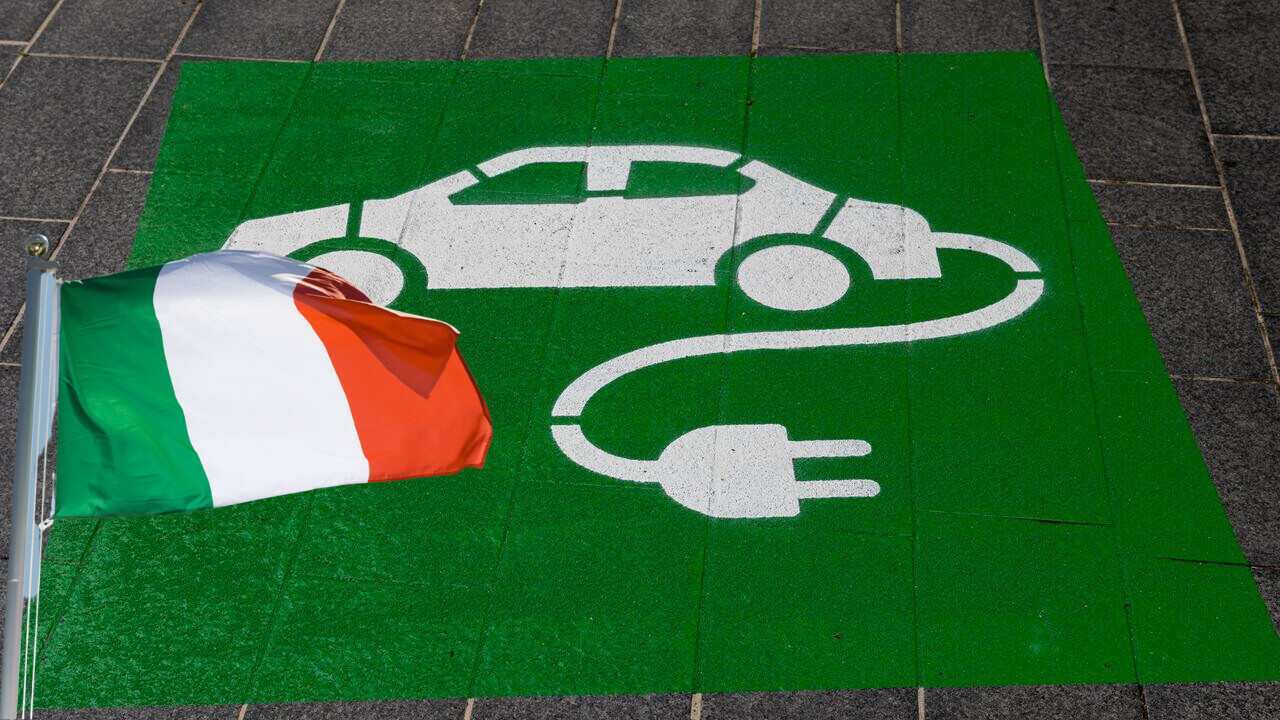
It’s not every day that your introduction to a car company includes spending time in Europe’s largest vertical wind tunnel for aerodynamic tests. Meet AEHRA. Its headquarters in Milan comprises not only the usual meeting rooms and desks, but also a wind tunnel where you can experience flying — and while mildly terrifying, it’s a hell of a lot of fun.
AEHRA is Italy’s only electric car startup, and its secret sauce is aerodynamics. I spoke to AEHRA’s CEO and co-founder, Hazim Nada, to find out more.
Nada tells me:
We’re not an automobile company. We’re an energy transition company. These cars won’t look like anything else. We don’t see anybody doing what we’re doing. We’re addressing a question as to whether electric vehicles need to continue to look the way they do.

The company is developing two luxury EVs — an SUV and a sedan — with aerodynamic architecture, using ultra-light carbon that reduces vehicle weight which, in turn, increases battery range.
I’m not very good at gleaning a visual picture of a new car design from a few sneak images the company released of its SUV vehicle last month.



But we’re likely to see something substantially different from the boxy galactic Cybertruck, more sleek and streamlined like the Mercedes Benz prototype, the Vision EQXX.
The company is critical of wasted space in existing EVs through, for example, large bonnets. Can we expect something more streamlined but snub-nosed? In the interior, the SUV will maximise cabin space — large enough to fit four NBA players and another person in the middle back seat.
Italy’s first EV
I was shocked that AEHRA is making Italy’s first standalone EV. Nada explains, “We see European brands being lost in the EV segment.”
There’s also a long history of Italian design houses like Pininfarina working for Chinese automakers like BAIC, Brilliance, Chery, FAW, Foton, JAC and SGM to bring their ideas to life. Chinese automaker Silk-FAW is currently at work building hybrid and electric luxury sports cars in Italy. That’s a lot of skill which is benefitting automakers outside of the country.
Nada and his team thought, “This is crazy. There’s so much know-how. Why is there not a single standalone company pushing local EVs? That’s really one of the core reasons that gave us the confidence to push our products.”
And while the company focuses on forward-future design, they’re taking their lead from existing automakers by employing local talent. Ex-Lamborghini Chief Designer Filippo Perini is AEHRA’s Chief Design Officer. Stefano Mazzetti from Ferrari leads AEHRA’s Purchasing and Procurement.
The company’s not making its vehicles itself but is utilising European partners and contract manufacturers.
Perhaps its biggest challenges are not simply going up against EV makers like Lucid, Tesla, Rivian, and NamX but those that beset any fledgling startup. Nada details the challenges of securing materials suppliers as an untested brand.
Further, like many European cities, Italy has the challenge of less off-street parking, reducing the capacity for EV chargers. What’s more, according to Nada, many end customers struggle with a grid connection with very low wattage, making charging at home difficult. Therefore AEHRA’s release needs to coincide with a mass expansion of private and public charging networks.
But AEHRA is focused on the luxury market, intending to launch lower-priced vehicles in the future. Their 800km battery range stacks up well against their competitors.

At present, Lucid Air comes with promises of 873km on a single charge, and you can drive the Tesla Model S Long Range for over 600km without charging. The Fresco XL promises a single charge range of 1,000km.
Do luxury EV-buyers welcome newcomers?
The question remains whether AEHRA can gain market traction to fulfil its ambitions. Are people willing to order a luxury vehicle from an unheard-of brand? I’m also curious what impact the recent election of a right-wing party will have on EV making. Last month, right-wing politician Matteo Salvini called for a referendum on the banning of ICE vehicle manufacturing by 2035. Will the government reduce the VAT on EVs and increase subsidies in the next decade?
According to Nada, the planned luxury electric cars will start at between €150,000 and €180,000. AEHRA aims to manufacture 25,000 vehicles annually. Production will begin in the first quarter of 2025, and the vehicles are expected to be delivered directly to the first customers in mid-2025. If AEHRA succeeds, it’ll change the Italian automaking landscape for good.
Get the TNW newsletter
Get the most important tech news in your inbox each week.




